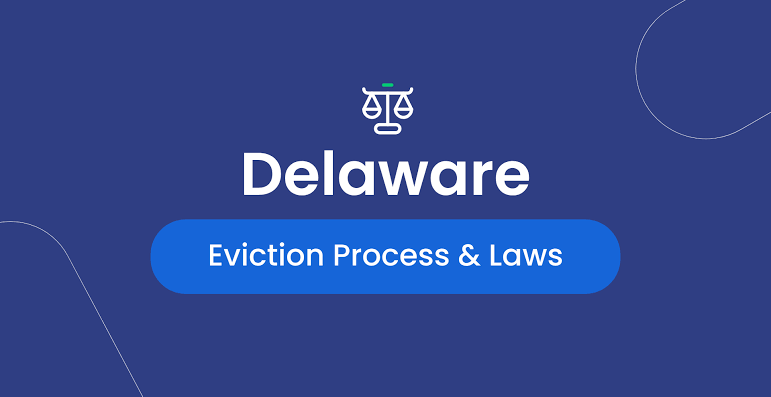Are you a landlord or tenant in Delaware? Do you need to evict someone? Understanding the eviction process is crucial. We’ll guide you through the steps, from serving eviction notices to attending court hearings and removing the tenant if necessary.
We’ll also cover reasons for eviction, filing requirements, and tenant removal and property disposal. Whether you’re a landlord enforcing your rights or a tenant facing eviction, this article is your comprehensive resource for navigating the Delaware eviction process.
Notice Requirements
To initiate the Delaware eviction process, you, as a landlord, must provide the tenant with the required notice as specified by state law. In Delaware, there are different types of eviction notices depending on the situation.
For example, if the tenant fails to pay rent, you can serve them with a Rent Demand Notice, giving them 5 days to quit. If there’s a violation of the lease agreement, you can issue a Lease Violation Notice, providing the tenant with 7 days to cure or quit. In cases of repeat violations or severe breaches, an Unconditional Notice to Quit can be given immediately.
It’s important to follow the proper notice requirements outlined in Delaware eviction law to ensure a smooth process. If the tenant doesn’t comply with the notice and refuses to move out, you can file an eviction lawsuit with the court and request a writ of restitution to regain possession of the property.
Reasons for Eviction
If the tenant in Delaware fails to comply with the required notices, you, as the landlord, may have several reasons for eviction. These reasons include:
– Holding over after the lease term expires
– Failing to pay rent or wrongfully deducting money from the rent
– Breaching a lawful obligation
– Holding over for more than five days after the property has been sold and the title transferred
– Refusing to move out for repairs when the unit becomes uninhabitable after fire or casualty
– Being convicted of a class A misdemeanor or any felony during the term of tenancy which caused or threatened to cause irreparable harm to any person or property.
It’s important to be aware of these reasons and follow the proper eviction process to ensure a smooth transition.
Landlord’s Eviction Notice
Serving a landlord’s eviction notice in Delaware is an essential step the eviction process. As a landlord, it’s crucial to follow the proper procedures when serving an eviction notice to a tenant.
In Delaware, there are different types of eviction notices depending on the reason for eviction. For non-payment of rent, a Rent Demand Notice is served, giving the tenant 5 days to quit. In case of lease violations, a Lease Violation Notice is given, allowing the tenant 7 days to cure or quit. Immediate notices may be given for repeat violations or unconditional quit notices.
It’s important to note that landlords may recover actual damages and reasonable attorney fees for all evictions. By serving the appropriate eviction notice, you can begin the legal process to regain possession of your property.
Filing an Eviction Lawsuit
When filing an eviction lawsuit in Delaware, you must submit a complaint form with the necessary information and details. The complaint form should include evidence of the lease violation, such as late rent payments or breach of the lease terms.
Along with the completed form, a filing fee of $45 is required. The good news is that the service of process to the tenant is included in this fee.
Once the complaint is filed, the court will serve the tenant with a summons, notifying them of the eviction lawsuit.
It’s important to ensure that all the required information is accurately provided in the complaint form to avoid any delays or complications in the eviction process.
Tenant Removal and Property Disposal
Once the eviction process has been completed, it’s time for you to initiate the tenant removal and disposal of property.
As the landlord, you must ensure that the tenant moves out within 24 hours of receiving the final notice. If the tenant fails to do so, you can obtain a writ of restitution after ten days, by paying a $40 fee for the service of the writ of summary possession. If the tenant still doesn’t move out within 24 hours of the writ being issued, the sheriff will forcibly remove them.
As the landlord, you should immediately remove and store any personal property left by the tenant. The tenant has 7 days to reclaim their property and reimburse you for storage costs. If they fail to do so, you can dispose of the property without further notice.
Conclusion
In conclusion, understanding the eviction process in Delaware is crucial for both landlords and tenants. By following the proper procedures and knowing your rights, you can navigate the process smoothly.
From serving eviction notices to attending court hearings and potentially removing a tenant, it’s important to be informed. Whether you’re a landlord seeking to enforce your rights or a tenant facing eviction, this article has provided a comprehensive resource for navigating the Delaware eviction process.

